7 things you should never store in plastic containers
Be sure not to store any of these items in plastic bins
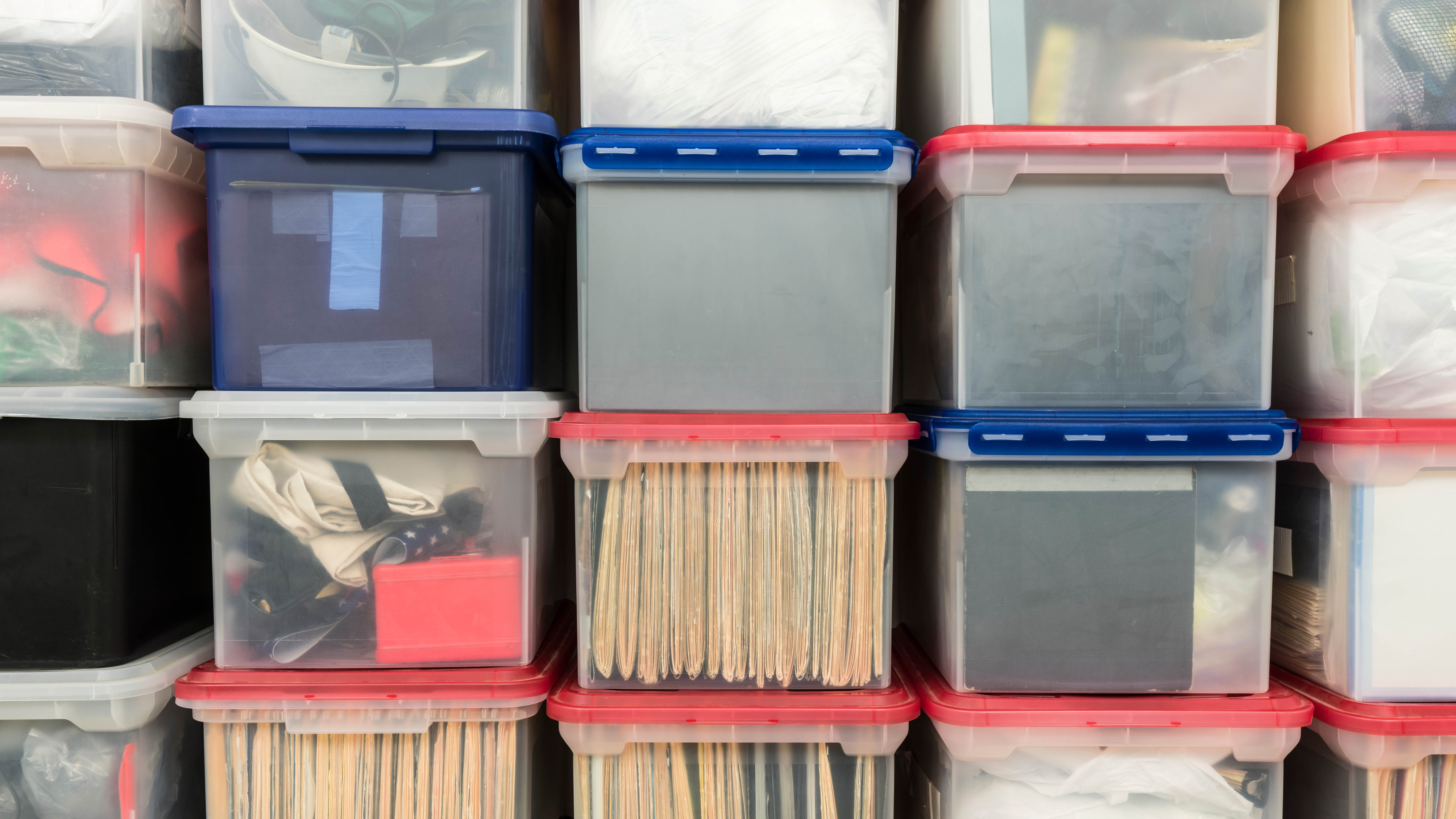
When it comes to decluttering our homes, plastic storage bins or containers seem like the most obvious and popular organization tool. But, did you know that there are certain items that you should never store in plastic containers?
Although such storage solutions are durable, versatile and transparent to easily see what’s inside, the plastic material is also prone to trapping moisture and absorbing odors. What’s more, this is worsened by fluctuating temperatures in the home, especially if not placed in a cool, dry space. Depending on what you’re storing, items could either degrade over time, or pose health risks.
So, before you start organizing your wardrobe or anywhere else in the home, be aware of these 7 things you should never store in plastic containers — to protect your items.
1. Leather items
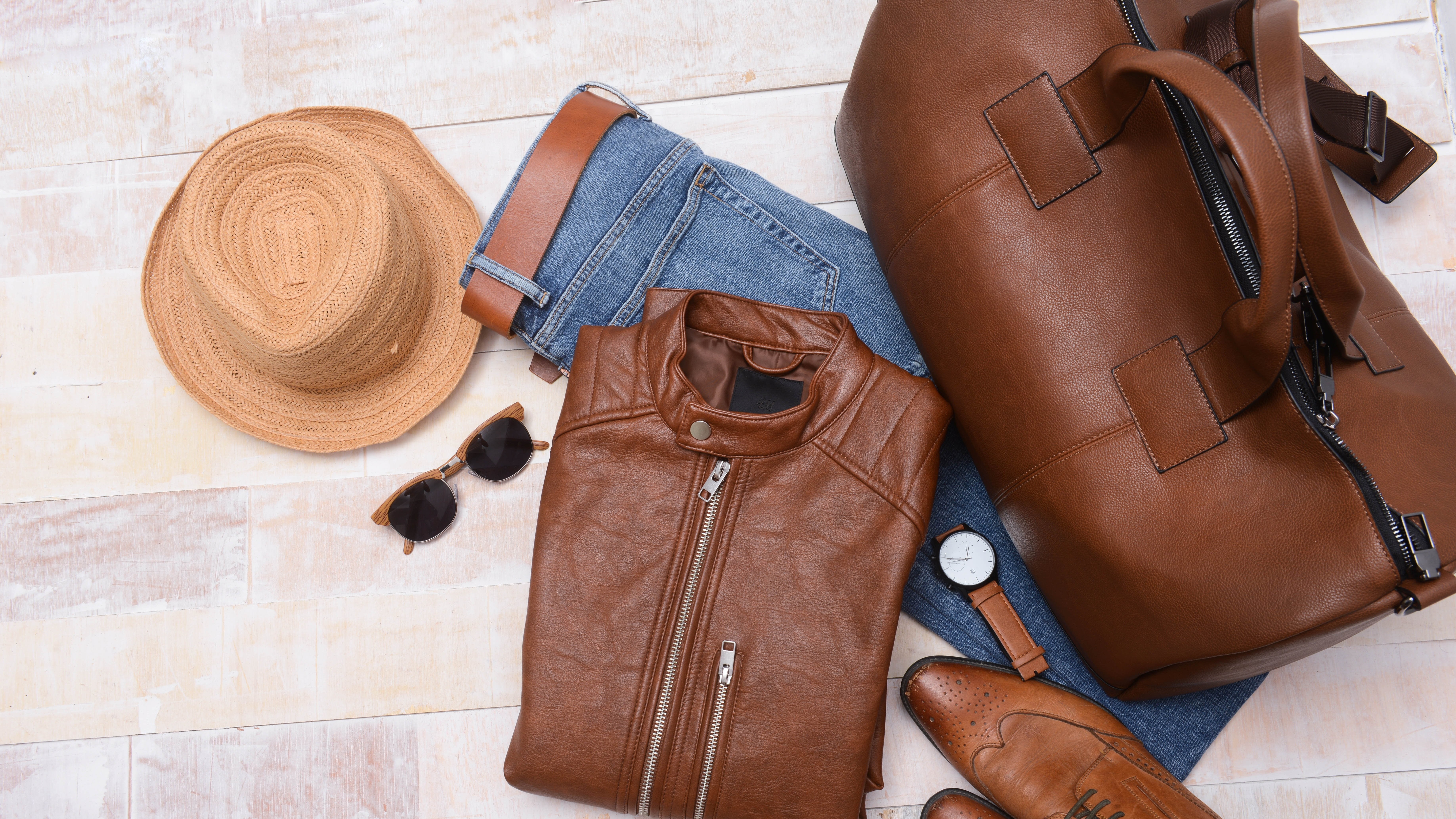
Whether it’s your favorite leather jacket, handbag collection, or shoes, avoid storing leather in plastic storage containers. The excess moisture that gets trapped in the plastic can damage the leather over time. This can either cause cracks, or even mold and mildew on the item.
Instead, leather items should be kept in breathable storage solutions, to ensure it stays dry, fresh and in good condition. For instance, dust bags are great for smaller items, while larger clothing might need a dustproof, durable clothing bag.
In addition, it’s best to keep leather items separate when storing, as the oils might transfer and stain anything next to it. For more top tips, check out how to clean leather and restore its shine.
2. Delicate fabrics
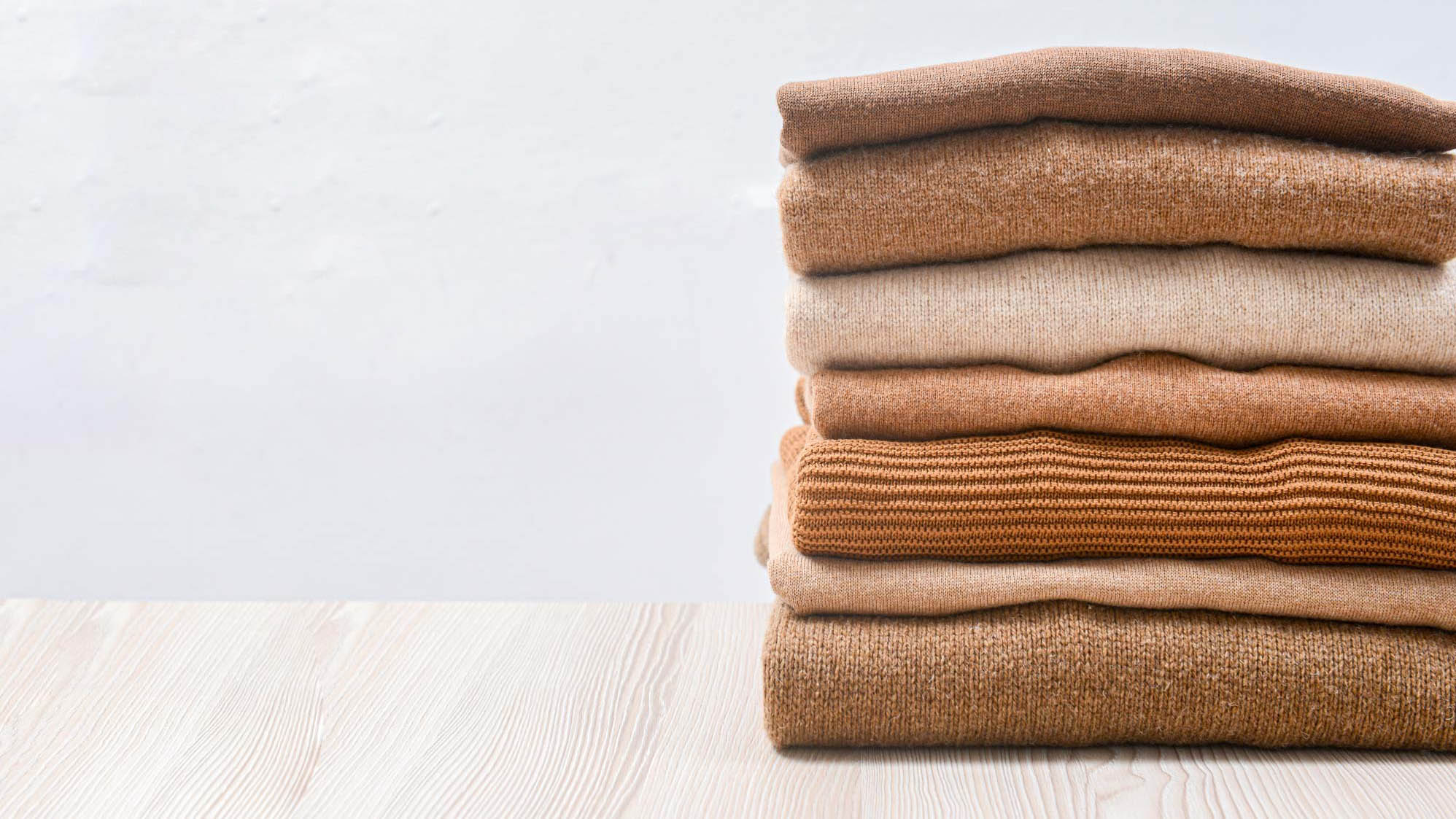
Similar to storing leather, avoid keeping delicate and natural fabrics in plastic storage containers. Fabrics such as cashmere, wool, and even lace are prone to capturing excess moisture, musty odors and damage if not properly stored.
Sign up to get the BEST of Tom's Guide direct to your inbox.
Get instant access to breaking news, the hottest reviews, great deals and helpful tips.
Instead, opt for breathable fabric storage bags, such as these 90L Large Storage Bags ($24, Amazon), which are also available in different sizes, and colors of your choice.
3. Electronic gadgets and batteries
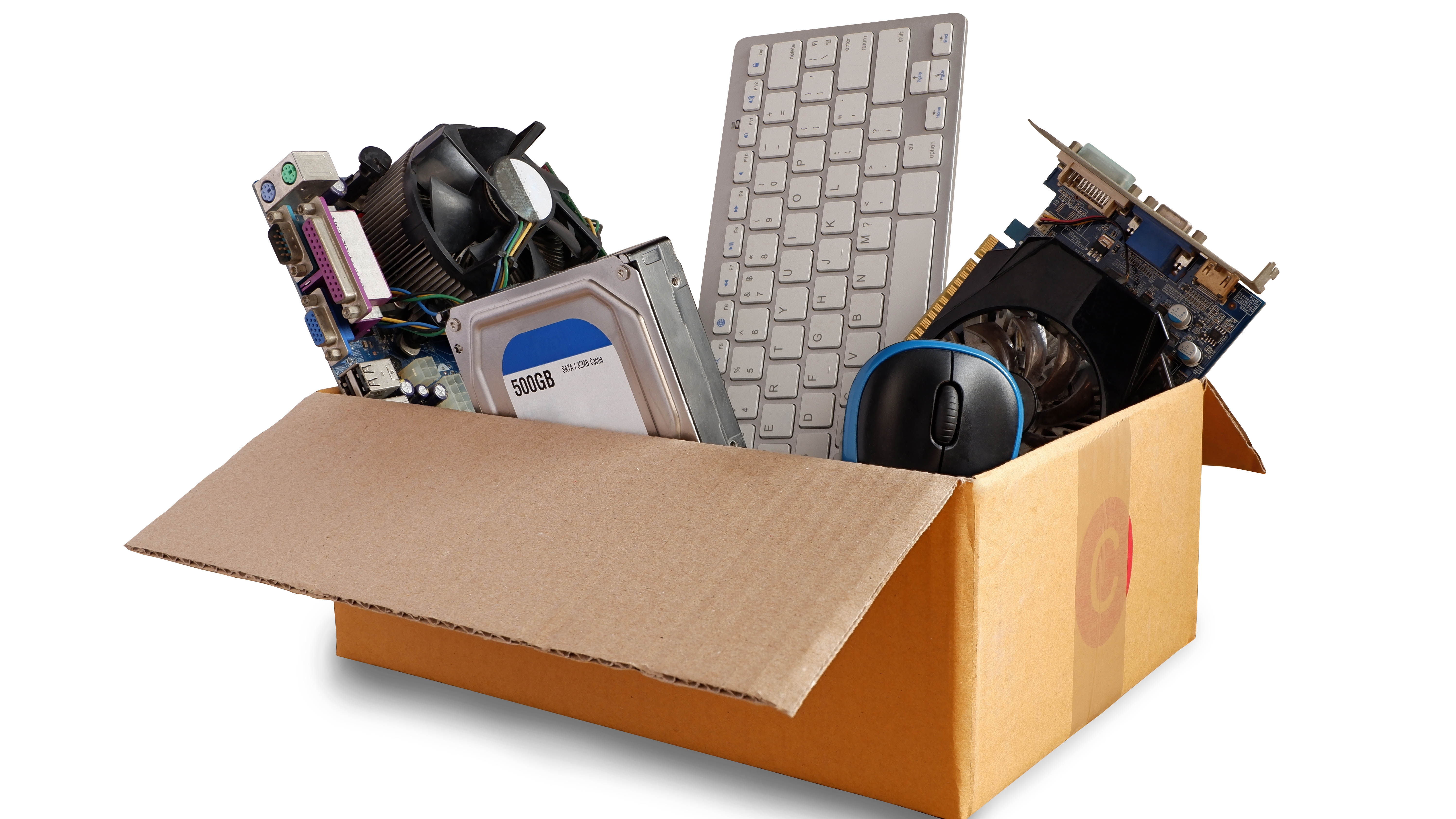
It’s quite common to stash away old electronic devices or store unused batteries. However, plastic bins or storage containers are a no-no. This is because it can generate static electricity, which could damage sensitive electronic devices, or even cause batteries to leak.
Instead, opt for anti-static packaging or boxes specifically designed for electronics. In addition, store old electrical items in a cool environment that is well-ventilated. Better still, you can recycle, donate or sell old computers and devices — especially if you’re hoarding clutter!
4. Important documents
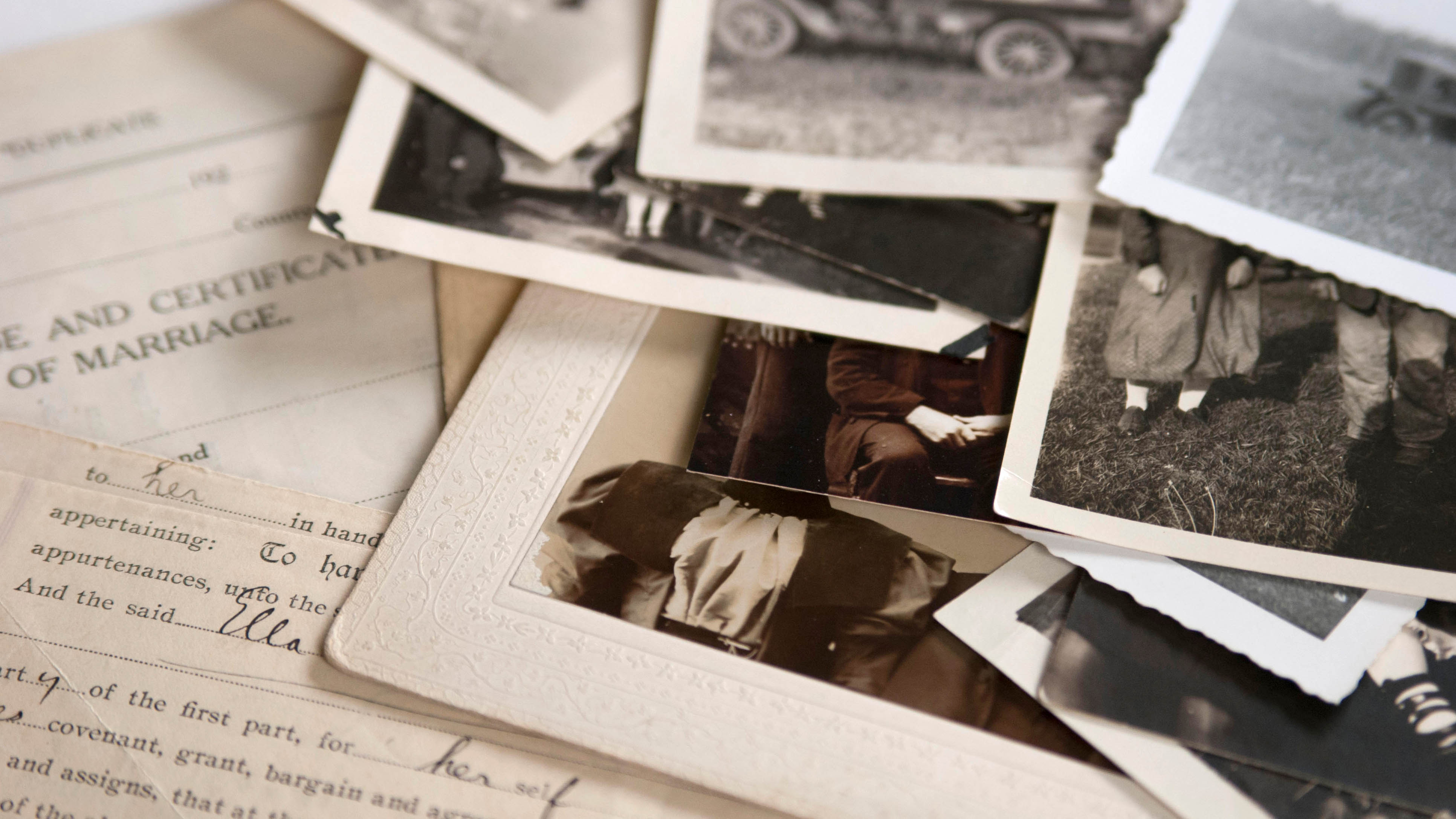
While it might seem practical to store important documents or family photographs in plastic sleeves or a storage box, this is also a no-no. Potential moisture issues from fluctuating temperatures, would either fade or discolor the print/documents — this is especially the case if these are not airtight or waterproof.
It’s always advisable to keep back-up or digital copies of important documents, should they get damaged. And if you have originals that you need to keep in good condition, you can always store them in a security safe box like this SentrySafe Fireproof Safe Box with Key Lock ($42, Amazon), which is also theft-proof.
5. Artwork/photography

Similarly, if you collect expensive artwork or rare photography, avoid storing these in plastic storage containers. If not placed in the right conditions, this will affect the print over time, causing it to either warp, fade or seriously ruin.
There are durable, vinyl bags designed for storing artwork like this BUSOHA Large Clear Mesh Vinyl Bag ($9, Amazon), that are also waterproof. The last thing you want is for your treasured (and valuable) collectibles to be damaged.
6. Food supplies
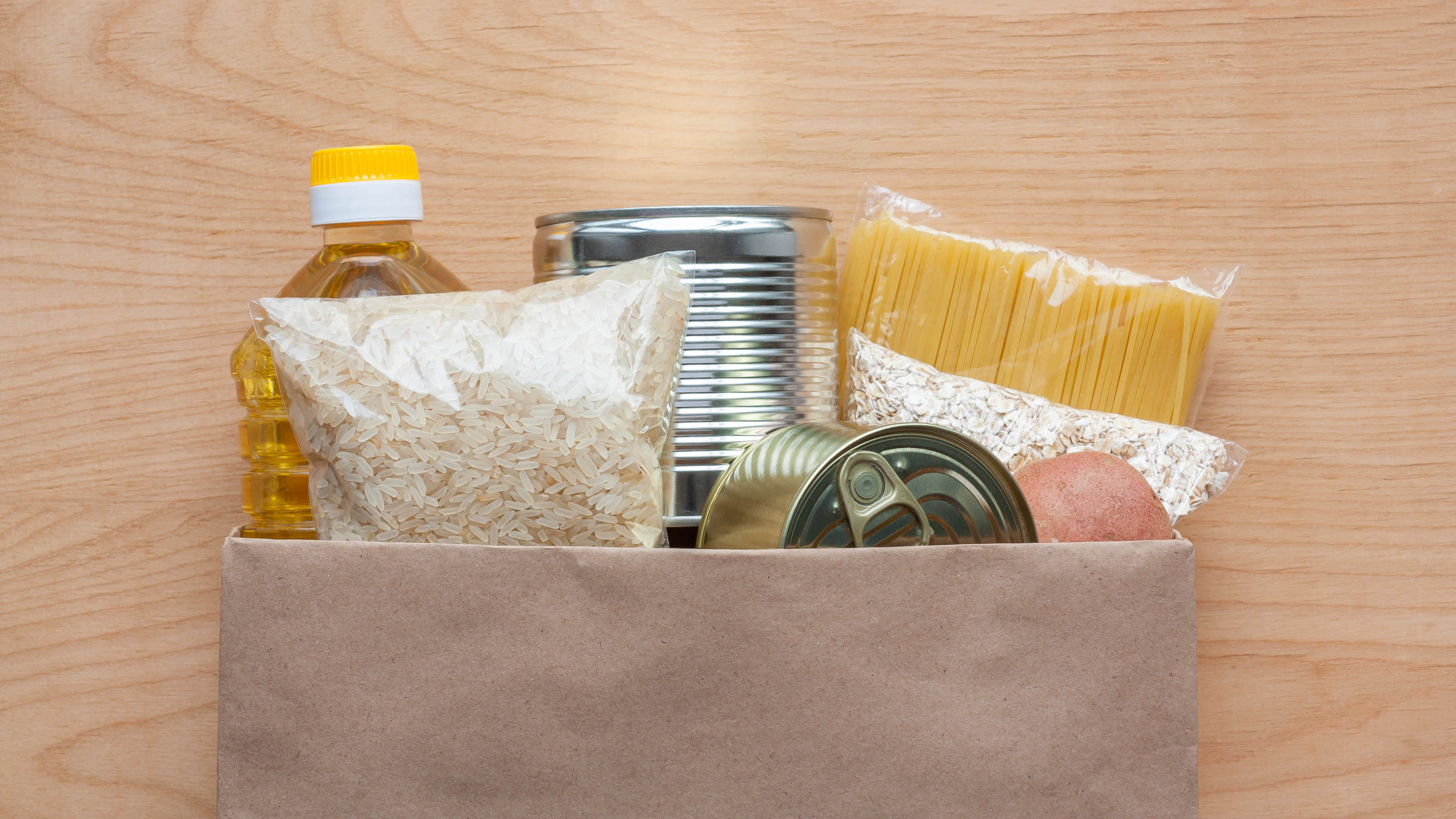
Whether you’re stockpiling on pantry supplies, or hosting a party, avoid storing both fresh or dried foods in standard plastic storage boxes. This is mainly because plastics are prone to temperature variations which can cause mold and mildew over time. In addition, plastics are known to absorb food odors or potentially leak harmful chemicals into items.
Instead, experts recommend always storing foods in glass containers — especially if you want long-term storage. Glass jars keep food and drink fresher for longer, and won’t affect the taste. Alternatively, opt for food-grade containers made from materials designed for storing food.
7. Pet food
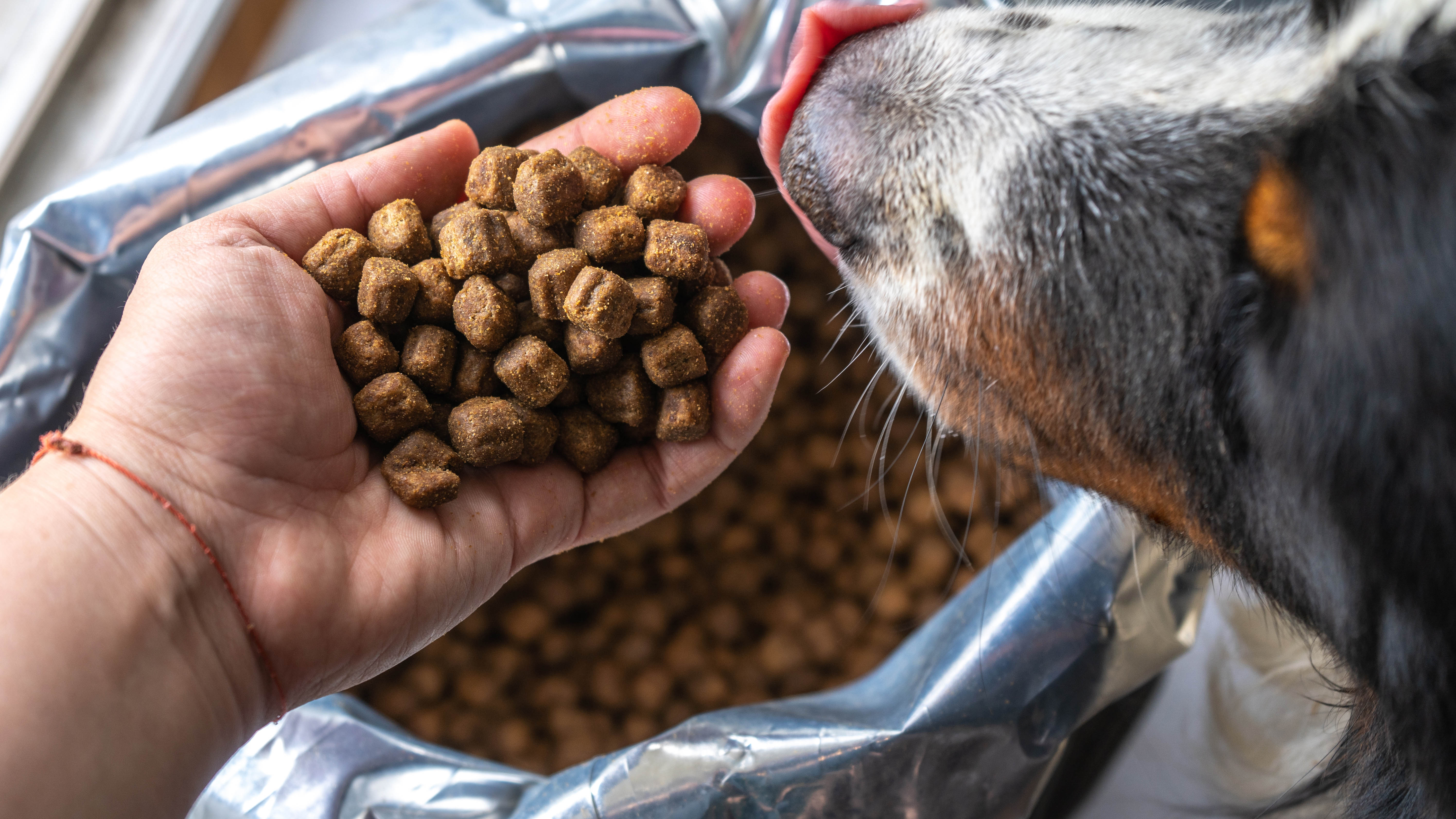
The same thing applies to pet food or kibble, especially if you’re tempted to empty the contents of a bag straight into a plastic storage container. Since dog and cat food contains oils, the plastic easily absorbs the oils over time, turning the food rancid.
What’s more, the box will end up smelling stale and unpleasant, if kept over a long period of time. It’s always recommended to simply find a plastic container big enough to fit the bag of pet food inside. This way, food doesn't come into direct contact with the plastic, affecting the overall quality of the food. More importantly, you’ll have happy fur babies during their mealtimes.
More from Tom's Guide

As the Homes Content Editor, Cynthia Lawrence covers all things homes, interior decorating, and garden-related. She has a wealth of editorial experience testing the latest, ‘must-have’ home appliances, writing buying guides and the handy ‘how to’ features.
Her work has been published in various titles including, T3, Top Ten Reviews, Ideal Home, Real Homes, Livingetc. and House Beautiful, amongst many.
With a rather unhealthy obsession for all things homes and interiors, she also has an interior design blog for style inspiration and savvy storage solutions (get rid of that clutter!). When she’s not testing cool products, she’ll be searching online for more decor ideas to spruce up her family home or looking for a great bargain!
